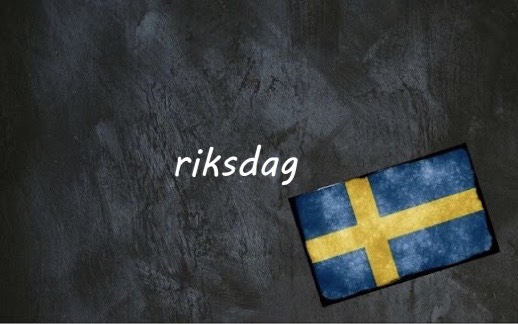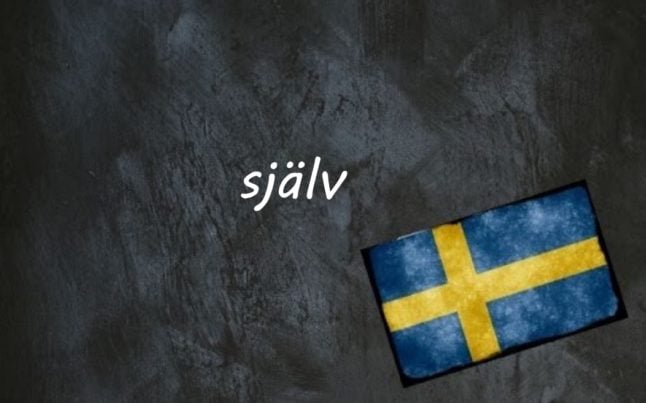Riksdagen is the Swedish parliament, you will find its cognates in the old Danish term for their parliament, rigsdagen, although they now use the term folketing, and in German, the Reichstag.
Riks– is from rike, which means ‘realm’ or in other words ‘kingdom’ as in kungarike. Svensk ordbok, the Swedish dictionary published by the Swedish Academy, tells us that rike is attested as far back as the 11th century on rune stones, that it is of Celtic origin, and that it is related to rik, the Swedish word for ‘rich’. It is believed to be of the same origin as rex in Latin, meaning king. Which should make kungarike a pleonasm, a redundancy, though hardly anyone will know that rike has this origin.
For comparison, ‘realm’ in English is from the Old French reaume, which in modern French is royaume, meaning ‘kingdom’. This is also from roy meaning ‘king’ which ultimately derives from the Latin rex, also meaning ‘king’. The kicker here is that Old Celtic languages and Latin were fairly closely related, some argue this is the reason they were easily replaced by Latin when the Roman Empire conquered the Celtic-speaking peoples.
The -dag part of riksdag means ‘day’, but there is more to this word in this context, meaning an ‘appointed day’ or ‘gathering’. In English you can find a similar word in ’diet’. Howso, you ask?
Manual widget for ML (class=”ml-manual-widget-container”)
Well, ‘diet’ goes back through Old French to the Latin diaeta, which could mean ‘a public assembly’, ‘a set day of trial’ or ‘a day’s journey’. That in turn derived from the Ancient Greek δῐ́αιτα meaning ‘way of living’ or ‘living space’ or ‘decision/judgement’. Which somehow was influenced by the Latin diēs, meaning ‘day’ – things get complicated at times in etymology it seems. Going to the riksdag then is going to the ‘diet of the realm’.
The word riksdag is borrowed from the German Reichstag, though the traditional Germanic term for these meetings or governing assemblies was a ting (as in the Danish folketing, mentioned above). We also touched on this in our möte word of the day article.
Sveriges riksdag, as you may well know, is the legislature and supreme decision-making body of the Kingdom of Sweden. You can visit the riksdag at Riksdagshuset on Helgeandsholmen in Stockholm, where you can watch debates or attend a guided tour.
So, next time your friend tells you about their new diet, you can tell them all about the etymology of the name of the Swedish parliament. Have a good weekend!
Example sentences:
Vet du varför man har ordet ‘dag’ i riksdag?
Do you know why they use the word ‘dag’ in ‘riksdag’?
Vill du följa med mig till riksdagen?
Do you wanna tag along to the Swedish parliament?
Villa, Volvo, Vovve: The Local’s Word Guide to Swedish Life, written by The Local’s journalists, is now available to order. Head to lysforlag.com/vvv to read more about it. It is also possible to buy your copy from Amazon US, Amazon UK, Bokus or Adlibris.



 Please whitelist us to continue reading.
Please whitelist us to continue reading.
Member comments